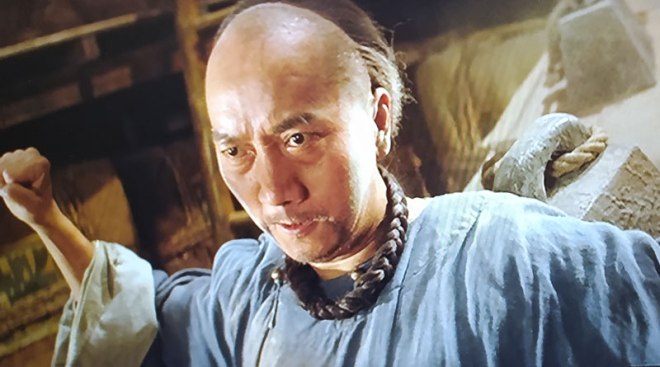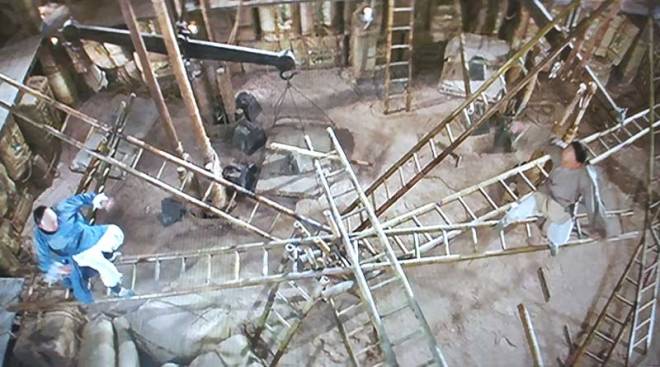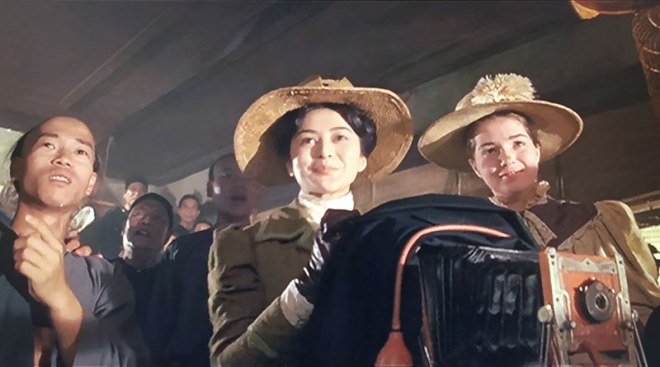There was a time when movies featuring a certain folk hero dominated Hong Kong cinema during the ’90s era, even though with varying degrees of success. That folk hero in question was Wong Fei-Hung played by the charismatic Jet Li — the role that made him a Hong Kong superstar at the time.
Celebrating its 30th anniversary this weekend, Once Upon A Time In China <黃飛鴻> is one of the quintessential kung fu classics that defined Hong Kong cinema. And looking back at the 1991 movie, it was undoubtedly an impressive feat with the way Tsui Hark revitalised the martial arts genre when contemporary action and crime movies were on the rise. This is especially true during the mid-1980s, where audiences at the time were more interested in movies like Jackie Chan’s Police Story <警察故事> (1985) and John Woo’s A Better Tomorrow <英雄本色> (1986) — both of which turned out to be huge box-office successes and won plenty of awards.
Part of what made Once Upon A Time In China <黃飛鴻> a success is Tsui’s revisionist spin of the Wong Fei Hung movie that distinguished from the ones starring the legendary Kwan Tak-Hing in the olden days. Just like how he injects political allegory into his earlier movies (among them includes 1980’s We’re Going To Eat You <地獄無門> and Dangerous Encounter – 1st Kind <第一類型危險>), Tsui doesn’t just restrict Once Upon A Time In China <黃飛鴻> into a merely straightforward martial arts movie. Instead, the movie is politically dense where he and co-writers Yuen Kai-Chi, Edward Leung Yiu-Ming and Elsa Tang Bik-Yin cover several themes at once from colonisation to westernisation.

The result is intriguing, even though no matter how many times I rewatched the movie, it’s hard to deny that Tsui gets too ambitious for his own good. Clocking at 134 minutes, the movie is bloated and patchy in places as Tsui tries to juggle between the layered storyline and several characters other than Jet Li’s Wong Fei-Hung at the same time.
The latter is particularly evident with the introduction of Iron Robe Yim Chun-Tung played by Yen Shi-Kwan (the same actor who would later appear as the evil monk in Yuen Woo-Ping’s Iron Monkey <少年黃飛鴻之鐵馬騮> two years later). More than just a formidable antagonist who fights Wong Fei-Hung, Tsui depicts him as a sympathetic character who we first met as a street performer demonstrating his unusual strength in front of the public. He also happens to be poor and a nobody who wishes to make a name for himself by planning to open a martial arts school. But to achieve his goal, he has to prove his worth by setting up a duel against Wong Fei-Hung.
This, of course, leads to one of Hong Kong cinema’s most memorable fight scenes of all time: the final duel where Wong Fei-Hung and Yim square off against each other in the warehouse. The scene also featured the two opposing martial artists using the bamboo ladders in the utmost inventive ways possible. And credits must go to Yuen Cheung-Yan, Yuen Shun-Yee and Lau Kar-Wing’s impressive martial arts choreography — a result that won them a well-deserved Best Action Direction at the 11th Hong Kong Film Awards.

Here, Marco Mak also does a great job editing the scene (who took home the award for Best Film Editing) and coupled with Tsui’s virtuoso camerawork, the movie even manages to convincingly hide his ankle injury with the help of Xiong Xin-Xin as a stunt double. This, in turn, explained why Jet Li was mostly filmed either in close-ups or medium shots during the final fight. Xiong Xin-Xin, of course, would go on to play Kwai Geuk-Chat a.k.a. Club Foot in the last four Once Upon A Time In China <黃飛鴻> movies.
Interestingly enough, Lau Kar-Wing and Lau Kar-Leung were originally hired to choreograph the action for Once Upon A Time In China <黃飛鴻>. Both brothers happened to be martial arts masters who studied Hung Ga fighting style under one of Wong Fei-Hung’s disciples, Lam Sai-Wing (Kent Cheng played the supporting role in this movie). And while Lau Kar-Wing retained in the credits as one of the martial arts choreographers, Tsui prefers the fighting style to be less rigid but more agile and flexible. This also explained why Yuen Shun-Yi and Yuen Cheung-Yan, both brothers to famous Yuen Woo-Ping were later hired to spice up the choreography.
Back to Jet Li, he made the noble hero/medical practitioner of Wong Fei-Hung truly his own and his real-life martial arts background is put into great use during the fight scenes. Although he already gained popularity making his acting debut in 1982’s Shaolin Temple <少林寺>, it wasn’t until his lead role in Once Upon A Time In China <黃飛鴻> help propelled him into superstardom throughout the ’90s era. He would go on to reprise his role three more times in the franchise until Once Upon A Time In China And America <黃飛鴻之西域雄獅> in 1997. Excluding the franchise, he did portray the same role in Wong Jing’s action-comedy Last Hero In China <黃飛鴻之鐵雞鬥蜈蚣> in 1993.

The supporting cast is just as good, with the aforementioned Yen Shi-Kwan’s role as Iron Robe Yim Chun-Tung being one of them. The rest including Yuen Biao’s Leung Foon, Jacky Cheung’s Bucktooth So as well as Rosamund Kwan’s Aunt 13th and Kent Cheng’s Porky Wing a.k.a. Lam Sai-Wing are equally worth mentioning as well.
Once Upon A Time In China <黃飛鴻> is also notable for James Wong’s award-winning score and so does George Lam’s powerful anthem of the movie’s famous theme song during the opening credits. The first movie was a big hit at the time of its release, grossing HK$29.6 million at the Hong Kong box office. It even scored 8 Hong Kong Film Awards nominations including Best Film (lost to Poon Man-Kit’s To Be Number One <跛豪>) while Tsui Hark won his first Best Director award.
Following the success of the first movie, Tsui made an immediate sequel in 1992 and the result is Once Upon A Time In China II <黃飛鴻之二男兒當自強>, which is highly regarded as the best sequel in the franchise that even upstaged the 1991 original in terms of its quality and financial success.


